|
"What a luxury!" a friend said to me when she heard I was going on a silent retreat.
"I've discovered a silent retreat is not a luxury, it's a necessity!" I replied. She had no idea how serious I was about my need for silence. At the beginning of July, my body was letting me know I needed a pause--irritability & a short fuse, quick to tears, constant tiredness, feelings of overload & overwhelm, etc. My spouse was letting me know he needed a pause given how his own emotional and physical weariness had intensified by the loss of his father earlier this year. My kids were letting me know they needed a pause to recover from the pressure of school & sports schedules as well as a very active June. Looking at our July schedule, we decided the planned family vacation to Seattle was not a wise idea. It was full of activity rather than rest. And even though we had been looking forward to it for a long time, we would not push through, instead we would pause. While it was to look differently for each of us, all of us needed silence and solitude. Russ went to Missouri to stay at his dad's house by himself then I went to Sacred Heart Monastery in Cullman, Alabama (pictured above) for a private silent retreat. And the kids spent time inside and outside their rooms, painting and playing driveway basketball, allowing for some slow summer days at home. A pause offered us space to grieve and breathe. A pause also helped us see! "When your eyes are tired, the world is tired also," begins poet David Whyte in "Sweet Darkness" from The House of Belonging. When tired, I need to rest my own eyes so I can see the world differently. Of course this is both literal and metaphorical! At Sacred Heart, I needed to literally sleep and have large chunks of time with nothing to do but rest and remember. A sacred pause often looks so ordinary! Here's what mine looked like:
Did it solve all of my problems? No, but it gave me needed insight. It helped me see myself, my work, spouse, kids, and world in a new (or renewed) light. I was reminded that I am not and never will be superwoman. I was also reminded that I have the strength to establish or return to some much-needed boundaries. And my time away affirmed how much I need regular time away! My family, friends, and co-workers would agree! ______________________________________________ What are your indicators that you need a pause? Is there anything you need to pause, postpone, or plan differently? You don't have to go anywhere but sometimes it's good to get away. Even Jesus invited his disciples to "Come away all by yourselves to a quiet place and rest awhile." (Mark 6:31) As his disciples experienced, life can get to be too much sometimes so silence & solitude are a necessity! So whether or not you join me for Centering Prayer or the 4-day silent retreat at Sacred Heart Monastery in October, may you, too, allow silence and solitude to be friends on your journey. (This blog was part of an e-news sent July 2023. Sign up for Kasey's quarterly e-news here.) I had a blog I was going to share then decided not to...yet.
As I read what I had written, my supervisor's wise words echoed in my head, "Sometimes a spiritual insight or experience is meant to nourish you for a while before you offer it to others. Given away too soon and it loses some of its potency for your own heart & soul." So I decided to savor the experience and insight for now and share her words instead. In this age of social media, "sharing" can become compulsive (those of us who teach have this tendency as well)! Here's some encouragement to savor a moment or insight without sharing a photo or post...yet. By the end of December, I was exhausted. The joy of journeying with the first cohort in Wisdom Tree Collective's School of Spiritual Direction (more about that next month!), was overshadowed by a deep weariness. And I was dragging..
My repeated tries to get away for a few days of rest and relaxation?--thwarted! So, I took a vacation from social media and spent a little time listening to my life (and body). What I discovered was over-commitment and way too high of self-imposed expectations for any mere mortal. You may know this feeling well. I did not simply need a week away from my everyday life, I needed to change the rhythm of my life every day! That became (and is) my prayer this month: to return to the "unforced rhythms of grace" that Jesus speaks of in Matthew 11. With that prayer has come the awareness of how I'm out-of-rhythm:
Such self-awareness can leave me feeling overwhelmed. Creating space or learning anew seems like another responsibility. A spiritual practice that helps soften the hardness and let go of the heaviness in the moment is writing haiku, a 17 syllable, separated into 5/7/5, poem. Here are two of the six I wrote last week: When too many words Are swirling within your brain Pour them out in ink Come, laugh a little Release the seriousness Everyone needs play These simple poems helped me focus my overwhelming feelings into three simple lines revealing my soul's wisdom for the present: Pause, write and play. Others revealed practical ways of shifting energy and attention, letting go and opening up. Space was being created in me! This allowed me to see the gifts being offered, like a friend suggesting a children's book on breathing (scroll down to learn more). Maybe haiku is something for you, too. It reminds me of Jesus' invitation to become like a child (especially when struggling under the weight of being an adult)!  Photo by Damian Siodłak on Unsplash Photo by Damian Siodłak on Unsplash Choices can be difficult. Wanting to make the perfect one, I can struggle with “buyer’s remorse.” It can be about a purchase or any decision I have made or need to make (especially if others are concerned). Did I take enough time to make the best choice? What if I didn’t? Was I right? Was I wrong? I will replay the options. Especially if my choice does not please others, I will replay it even more. Sometimes it can become compulsive, stuck on a loop in my brain. We all have experienced the stress that comes from obsessive over-thinking. Over the years, I have tried a variety of ways to “throw a stick in the spokes” and stop the constant thought-cycle. The practice of Centering Prayer has been one thing that, gradually, has made a difference. Centering Prayer can be a challenge as one gets to discover all the places the unruly mind wants to wander instead of stay in the present (it is certainly not interested if the present has feelings it doesn’t want to feel!). As I have grown in acceptance of the brain’s (sometimes bizarre) escapades to do anything but feel reality and rest in God, I have grown in awareness of when I am joining its invitations to run away to the circus of compulsivity. Here are two simple ways of returning home:
The keys to both are patience and gentleness (two indicators or “fruits” of the Holy Spirit as described in Galatians 5:22-23). It may take a while, but with gentle persistence old compulsive paths will be less and less traveled. And relief will rise with your every return to the pathways of peace. 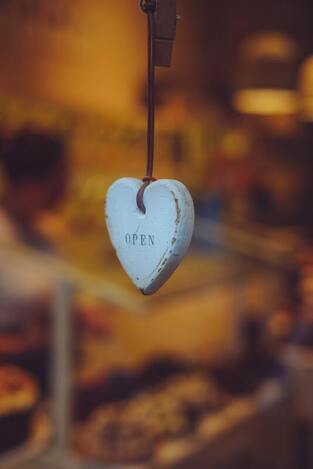 Photo by cyrus gomez on Unsplash Photo by cyrus gomez on Unsplash The comforts of language are true and deep; writes Mary Oliver at the start of “If You Say It Right, It Helps the Heart Bear It” in Evidence. Language is important. Every area of life has its own language whether the world of science or business, music or 12-step groups, the same is true for the world of spiritual direction. One of the first things people notice when coming to spiritual direction is it offers a new kind of language. For those suffering from religious abuse, the language itself can be a balm for the soul. After her first session of spiritual direction, a woman said to me, “The words ‘deep permission’ and ‘invitation’…I’ve just never considered Jesus offering me those, it feels extravagant. But I feel such relief to think that God would be giving me permission and inviting me into something so healing…those words alone have been a revelation today.” No language is perfect, but it helps convey something of essence or experience. Words like hospitality, authenticity, curiosity, allowing, and stirring, offer a different way of entering into a conversation about God and with God. A youth and children’s pastor started using this language of invitation and curiosity during spiritual direction. He has come for a while so has become familiar with thinking about and entering into the spiritual life in some different ways. Hearing him talk warmed my heart, because I knew he was integrating this language of the soul into his work with children and teenagers. As we enter more deeply into these words and find them life-giving, we cannot help but integrate them into our own vocabulary where or when it seems right. However, the irony in all of this, is that spiritual direction isn’t about words at all! We spend a lot of time helping people befriend Silence and the One Who is Beyond All Words. When we and others do speak, the words can be very powerful because they begin with God in Silence. And they can be equally powerful when we do not speak the words, but embody them. I’m reminded of a woman who told me she saw a symbol of another religion in her adult daughter’s home that made her cringe. Usually she would have spoken her mind right away. As she felt her daughter’s eyes on her, she resolved to bring the matter to spiritual direction instead. “Way to go!” I told her, “Way to wait and take it into the Silence with God!” By the end of our session she exclaimed, “Praise God, I’m so glad I didn’t react because it would not have been the right response but one full of fear and judgement. Instead I want to invite her to tell me about it. I want to hear her story.” “And you may learn something really interesting!” I added. Then she asked if there was anything she could read in order to expand her own thinking. After suggesting a book, I said "What a beautiful conversation this is going to be with your daughter! I can't wait to hear about it!" What a wise mother of an adult daughter she is! So words can welcome and invite connection, and words can help us name, describe, and discover even more. But there is no final word—whether it be about God, ourselves, each other, or spiritual direction. We're always growing and expanding...and that’s part of the fun!  Photo by NeONBRAND on Unsplash Photo by NeONBRAND on Unsplash I’ve grown weary of all the talk about the heart in contemplative prayer. Sounds terrible, doesn’t it?! After all, the heart is the focal point of contemplative prayer! But after a while, my heart started getting angry, feeling the burden of such attention and expectation. Nineteenth century Russian mystic Theophan the Recluse said, “To pray is to descend with the mind into the heart, and there to stand before the face of the Lord, ever-present, all-seeing within you.” Teachers of prayer and contemplation, like Theophan the Recluse, have emphasized the heart and taught various ways of guiding us to pray from it. I have learned and offered others various ways of integrating such prayer, especially through the imagination as we bring our attention to the heart. But I did not realize how much modernity was still operating under the surface. Contemplative prayer was such a welcome relief for me after prayer that emphasized the “head” with its words, whether thought or spoken. With the latter, once one had invited Jesus into or given Jesus their heart, the focus was on knowing the right beliefs and acting accordingly. All that was needed for prayer was found from the neck up (and the rest was not to be trusted!). This disconnect was not unexpected. When modernity ushered in a time of dissecting in order to discover, the heart became associated with a particular organ in a particular location. Where is the heart? It’s in the chest, of course! It’s job is to pump blood (and woe to the person who trusts any feelings associated with it!). The earliest Biblical people did not think of the heart (lev) in this way. The “heart” of a person referred to the “seat of all of life.” When told to “love God with all of your heart,” this included one’s mind, soul, and strength. For the ancient people, the heart was the whole of a person—feelings, thinking, understanding, will, and wisdom. Since the heart was the center of one’s existence (physically, mentally, and emotionally), to love God with one’s heart was to allow God to be at the center of one’s whole self (body, mind, and soul). What is at our center directs our life. Tapping into and resting in that center with God is the playground of contemplative prayer. However, modernity broke up this inherent unity to study and evaluate the diversity of the parts and it elevated the mind above all else. Contemplative prayer with its emphasis on the heart, invited the mind to descend from it's place of self-sufficiency and recover humility. But, if modernity is still the framework, the draw is to elevate one part over the others, this time placing the heart on a pedestal rather than locating it within the whole. During a time of meditation with a Buddhist, I was not guided to focus on my heart, but to discover any place of openness or peace within. Hearing her words offered me an unexpected ah-ha moment! I immediately was transported back to the Hebraic view of the heart. As I listened to the whole of my body and not just one part, I discovered the burden on my heart and tension in my chest began to dissipate. (Last week I mentioned this inner co-dependency with the heart.) I chuckled as I noticed the openness was in my face, particularly my cheeks. Another time the openness was in my gut, still another behind my eyes. All of these places were open to God but I was unable to see them for my inner eyes were focused on one place! So much wisdom just waiting to be discovered. When God infuses all of oneself, all of oneself is a channel to experience God. The heart is found everywhere, not simply in one physical location. Where am I best able to listen to the heart of God today? I notice an openness in my hands. Through my hands, the heart of God has something to say to the heart of me. Through my hands I listen and offer a prayer. 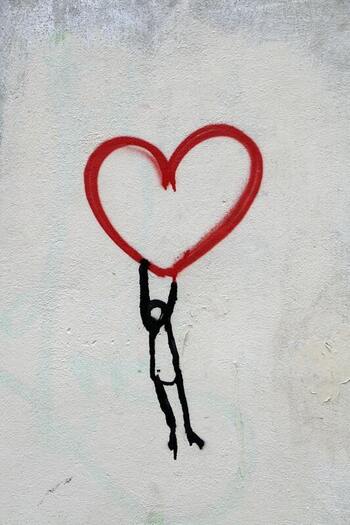 Photo by Nick Fewings on Unsplash Photo by Nick Fewings on Unsplash Living with tension in my chest has been a normal way of life for me for a long while. Feelings of heaviness, anxiety, pressure, and strain are familiar. Usually it is a manageable low-grade variety, but sometimes not. I have dealt with stress in my body for as long as I can remember—from intense stomach issues, headaches, and back pain that began in my early teens through late thirties to chronic hives and tension in my chest that is more prevalent now than the earlier symptoms of the previous decades. What I did not know then that I am beginning to know now is how hard my body has worked in order for me to move through life in productive and even life-giving ways. It has tried to control all the chaos, experienced and perceived, around and within, by holding it in different parts—the head, the stomach, the back, and now the heart. And what does this have to do with Spiritual Direction you might wonder? Well, the spiritual journey is one of giving up control! And that makes a body panic. Authentic spirituality will always lead to surrender and the body is most often the last to let go. Embracing a life of contemplation years ago with its practices of silence, solitude, and stillness has been transformative AND it has led me to this place of being on the brink of a deeper letter go. But first, in teaching me how to be present and not avoid reality, contemplation increased my tension and revealed an inner co-dependency. Weary of the increased tension, I began seeing a somatic therapist (someone who can help me better listen to the wisdom of my body, not just talk about my troubles). She also offers IFS. Internal Family Systems Therapy is a way of working with our internal parts or "family" so that there’s inner harmony rather than polarization and disharmony. I have found it so helpful over the years that I regularly incorporate it into Spiritual Direction with others. So during a session when I turned my attention to my heart, the heart responded with letting me know it was working really hard in “keeping it all together” on behalf of the rest of my body. How?—by consolidating all of the stress and strain into one area, holding it all in the chest…no wonder it felt heavy! As a Reiki Therapist (in addition to being a Spiritual Director), I know that the heart chakra normally filters what is being experienced but my heart was holding it all. Why? It did not want the other parts to feel the pain so it was “taking one for the team.” And the other parts were just fine with this co-dependent relationship. Even if a part was still hurting, it was willingly doing so. This is too common among mothers. Not long ago, I sat across from a mother and wife who has been doing the same thing for her family members. From an outsider’s viewpoint, it can be said that her fun-loving, spirit-lifting self, is the heart of the family. Being sensitive to her family members’ challenges and difficulties, she does her best through a variety of measures to help them not feel pain (or at least not as much), lest in her words, they “be destroyed.” Such a role can drain the light from one’s eyes, while also making it hard to see the co-dependency. Sometimes the only ones who can see clearly are the ones looking from the outside, noticing the absence of the eyes' light. They see the chaos and exhaustion and yet they have the least agency. For no matter how long or often another may see it, true "seeing" must come from within. In the session with my therapist, during a moment of silence, I remembered the painful interaction with my friend a few days before, and my heart said, “What you see in her is me.” Wow! I was surprised and then grateful for this insight. After expressing appreciation for the heroic ways the heart has expressed love for me, the therapist gently reminded this part that it’s easier to pick up a large weight with two hands rather than just one. She went on to say that in allowing other parts to feel the pain and chaos, the burden could be shared. My heart was skeptical but open. It saw and even named the co-dependency itself which meant it was ready for a change. But it still feared that in letting go, I would be destroyed—once again I would experience the searing nerve pain that led to emergency back surgery, the painful IBS that made for uncomfortable moments of dashing toward a restroom, the cancelled plans due to the need to be in a dark room for headache relief, or worse. It wanted to keep me from more of those experiences (and had been doing a pretty good job of doing so!). Yet I had sought help for the tension knowing that true freedom for one does not exist until there is freedom for all, whether in the outer world or inner world. So it began to relax and open in this safe space. And I began to feel the tension spread to my stomach, neck, shoulders, and head…oh no. Gently, I reminded my inner self that I was older now and had insights I did not have earlier in life. We were going to share the burden. And pain did not need to be the enemy. Guess what happened? Instead of being destroyed by the pain, the pain offered wisdom. In being dependent upon the wisdom of the heart, the other parts were sheltered. While this was okay for the short-term, it was unhealthy as a long-term strategy. Yes, different parts of me were not experiencing as much pain, but they were also not aware of the depth of their own strength and agency. “Kasey, when you feel your neck and shoulders get tense, it’s time to take a step back. You’re carrying too much on your shoulders,” the pain in those areas told me. Sometimes we need to step into what we fear may destroy us (or those we love, which is what we fear would destroy us). A spiritual director or therapist is often a wise (and usually a necessary) companion. Sometimes when we take that step, the tension increases. Looking back, the increased tension, even hitting "rock bottom”, is most often what leads to being given new eyes to see. Those new eyes to see help us navigate a new way to be. Next week: “How teaching on contemplative prayer actually encouraged inner co-dependency” 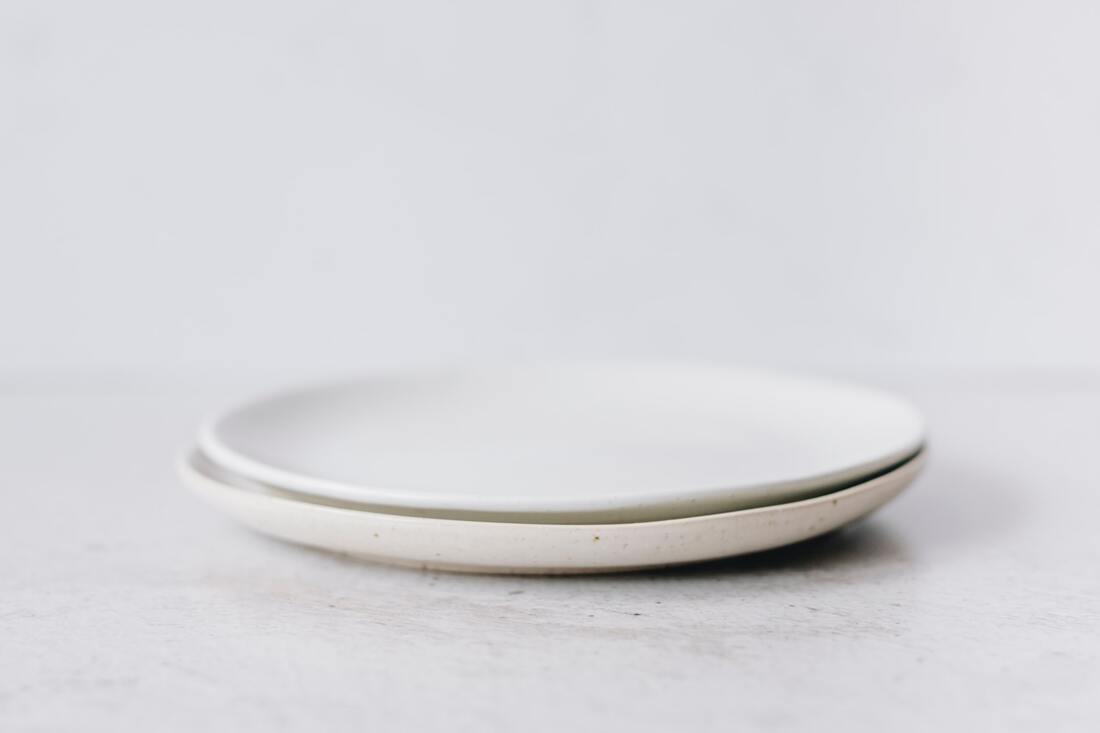 Photo by Mariana Beltrán on Unsplash Photo by Mariana Beltrán on Unsplash I asked my dear friend, Linda, what she thought the difference between "simplicity" and "settling" were and her answer surprised me. "Simplicity asks, 'What do you truly want?''" She went on, "With settling, I may settle for what I don't want and since it's not what I want, I keep looking for it.'" Then she shared an example from her own life. Many years ago, a woman asked if she wanted a certain set of dishes for her wedding and if she did, this woman would buy them for her. She really did not want them, but she felt uncomfortable saying "no" so she received them as a wedding gift. Since she had them and could get more pieces to match, she expanded her collection of dishes she did not want but settled for. But she noticed something. Whenever she was at a store that sold dishes, she looked at the patterns. Years of time and energy were spent on looking for dishes when she already had a full set! Her longing was left unsatisfied because she had settled so many years ago, afraid of offending the gift-giver. Now having retired, she decided it was not too late and she knew what she wanted. Much to the surprise of her family (who never knew she did not like the dishes!), she decided to box up her collection and put them for sale on a neighborhood social media site . Then she went out and bought the dishes she truly wanted, a beautiful butterfly pattern. Another woman happened to see the dishes she had for sale and was overjoyed for she had been looking for those exact dishes because they reminded her of her mother! Both were full of joy and satisfied with their purchases. Guess what happened after that? My friend stopped looking for dishes! We went on to talk about how we tend to buy things that are only on sale or we get what is cheap because we can have "more" of the item. Sometimes this is okay, but when it becomes a pattern, our collection of unwanted, unused stuff grows along with our dissatisfaction which compares and wants more. What do you truly want? It can be a difficult question. We need to stop and think rather than compulsively or fearfully say "yes" to what we do not want (or allowing others to decide for us or think we should want what others have). Jesus often asked people like blind Bartimaeus, "What do you want me to do for you?" It's not that Jesus could not see what Bartimaeus wanted, He wanted Bartimaeus to "see" and say for himself! It is a simple question. Yet answering honestly may just simplify the amount of internal and external stuff that becomes a burden--now that's a gift!  Photo by Jess @ Harper Sunday on Unsplash Photo by Jess @ Harper Sunday on Unsplash It’s what the old Shaker song says, at least! In fact, some lyrics say 'tis "the” rather than “a” gift to be simple. But nothing seems simple anymore. We live in a world of information (and misinformation!) at our fingertips. We're bombarded by choice at the grocery store and online. Constant comparison is exacerbated through social media. And stores like HomeGoods, Tuesday Morning, Ross, Overstock.com, Lowe's, Home Depot, and others are happy to feed our "more and better" obsession. "Complex" is more apt to describe our times rather than "simple." This is not necessarily a bad thing, it may be important to look at the complexities at work under the surface, rather than oversimplify an issue or situation (or even a person or group of people!). So in our cultural context, what is the gift of simplicity? And if we do discover it to be a gift, how do we go about receiving it? I began to return to simplicity in my blog last week, but I want to explore this question over the next few weeks as I glean from others' insights and experiences. Maybe you have some wisdom to share with me as well (my daughter sure did)! On a walk with my young teen earlier this week, I asked her, “What is the difference between simplicity and settling?” “I think it has to do with what changes,” she replied. She went on, “There can be all kinds of changes on the outside. But when a person settles, there’s no change on the inside.” “So for you, simplicity is a gift or practice that changes us…how interesting! And, would you say that simplicity helps us deal with the changes on the outside of us?” “Yes, I mean, that makes sense to me.” “What a good perspective! I’m going to be thinking about simplicity and change for a while.” _________________________________ What does the dance between simplicity & change offer you? I am invited to continue exploring simplicity as both a gift and a practice that offers deep change—peace and inner transformation. Simplicity may change me by changing the way I view “all the things.” Perhaps it gives the gift of discerning eyes when faced with a storm of choice and change! 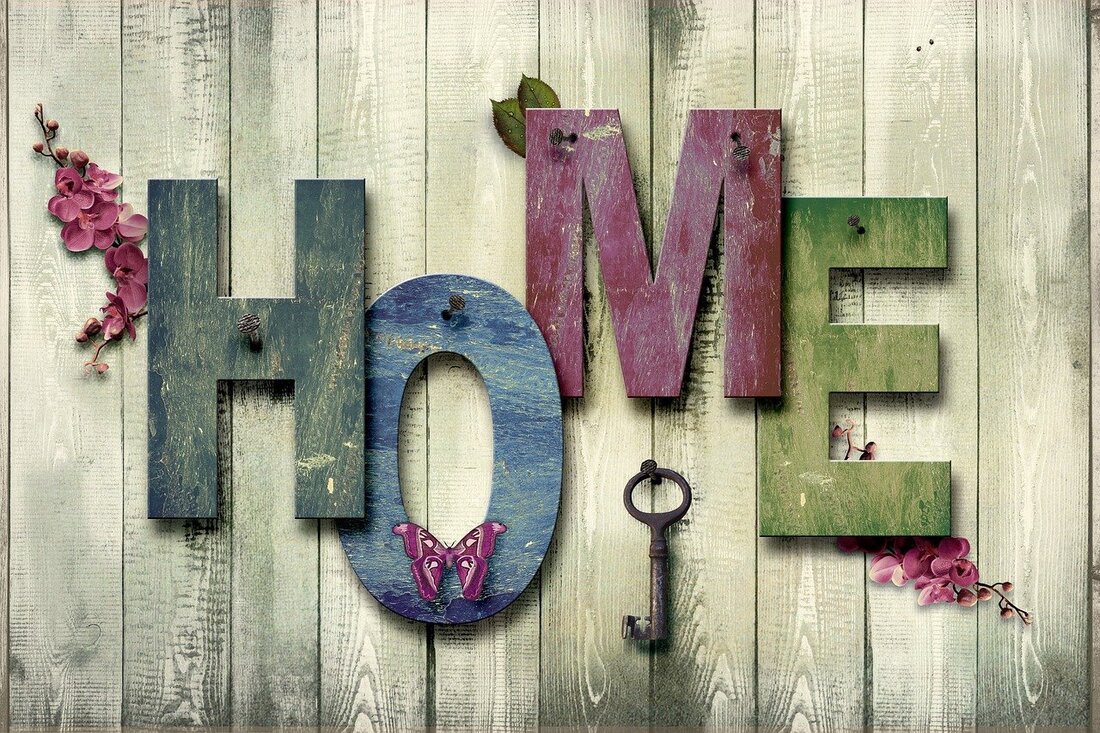 Do you feel safe in your own body? Do you feel at home? Embodied spirituality is spirituality with skin on. After all, any kind of experience we have, spiritual or otherwise, is because we exist within these bodies of ours! An authentic spirituality is one in which we tend to both the inner and outer world. Our body is tended to as part of the whole where spirituality and physicality are intertwined. We see this gift and mystery of incarnation in John 1:14, “The Word became flesh and dwelt among us.” Several thousand years before these words were penned, the Hebrew Bible spoke of the “nephesh” or “soul.” Rather than the Platonic idea of something that is separate from the body, "soul" in the Hebrew language indicated a unified, living, breathing physical being (so “soul” is not something we have, but something we are!). Viewed this way, our thoughts about and tending to our bodies can (and need to) be part of our spiritual practice. Our bodies can also tend to us by offering wisdom and guidance. As I participated in the spontaneity of Authentic Movement one day, my right hand effortlessly went to my heart while my left hand went to my back. I stood there for a moment, wondering what was being communicated to me. It took a few minutes for my rational mind to catch the meaning and make it conscious: “Support your heart” was my body’s message to me. This led me to purposely engage some heart-opening stretches and heart-grounding exercises. The message still stayed with me until I realized that it was another season in my life that I needed to pursue a therapist, one who could help me with some painful relationships and the release of stress and grief related to those relationships. Tears came to my eyes with this moment of recognition. My body felt like a caring friend. I often do not treat it as such. Especially when I get caught up in judgement and critique, then I'm apt to be harsh toward or ignore my body. As Father Richard Rohr has said, "How we see anything is how we see everything!" If I'm evaluating, judging, and critiquing my body, I'm more apt to be evaluating, judging, and critiquing everything (& everyone) else! And the opposite is true, as I welcome and listen for Wisdom through my body, I'm more apt to welcome and listen for Wisdom in everything (& everyone) else! In listening and tending, I become a safer, more hospitable place--and not just for myself. This is no selfish pursuit...for when we feel at home in our own bodies, we can help others feel at home in their bodies, too. If you do not feel at home in your body, you are not alone. There are many reasons why we may not feel safe in our own bodies. There are stories of wounds behind our reluctance to listen to, or even believe, our bodies hold Wisdom. Maybe, it's time to schedule a session with a Spiritual Director or a therapist! |
AuthorKasey is a scarf, ball and club juggling spiritual director just outside of Nashville, TN. Play helps her Type-A, Enneagram 1 personality relax, creating space for poetry and other words to emerge. She also likes playing with theological ideas like perichoresis, and all the ways we're invited into this Triune dance. Archives
January 2024
Categories
All
|
By clicking “Sign up for E-News” I consent to the collection and secure storage of this data as described in the Privacy Policy. The information provided on this form will be used to provide me with updates and marketing. I understand that I may modify or delete my data at any time.
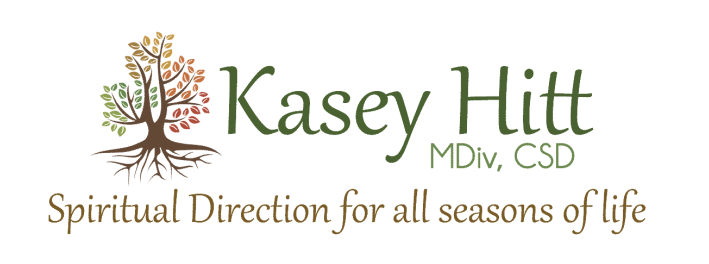
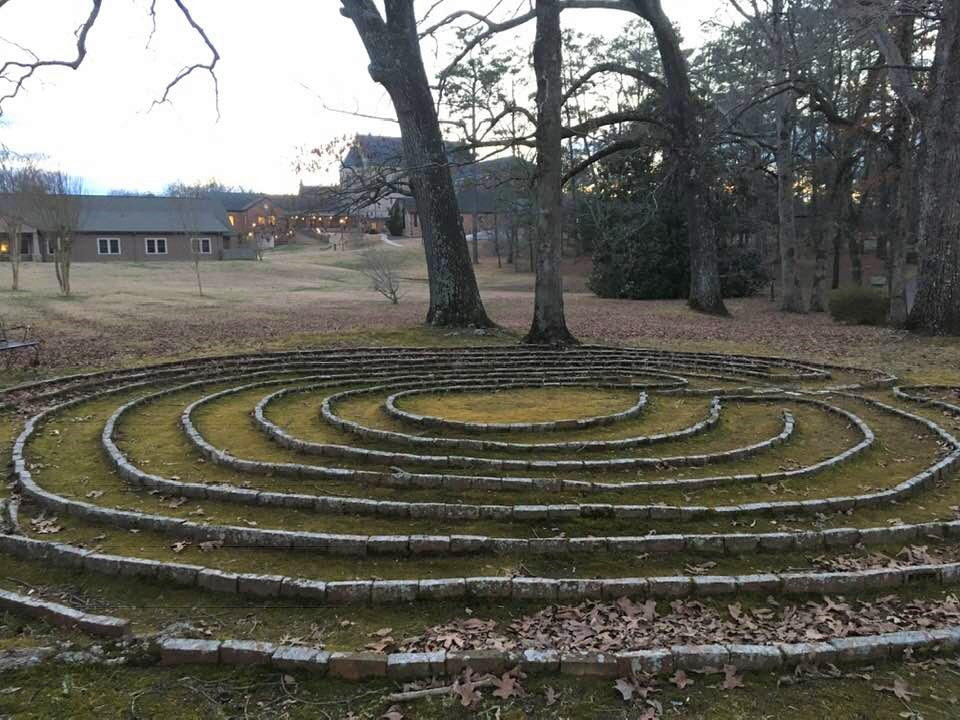

 RSS Feed
RSS Feed

